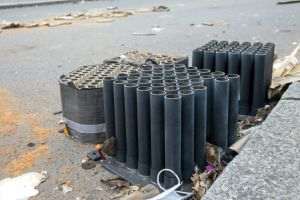The Nastase Cabinet has been fighting corruption so ardently that, ironically, it has convinced over half of the Romanians (55 percent) that bribe is the very engine without which The Government cannot function, according to a study released by GfK yesterday.
"Bribe is almost institutionalized, considering that only 37 percent of the Romanians say they have never given or taken a bribe," said Cosmin Alexandru, general manager of GfK Romania. For comparison, he said that no less than 70 percent of the Poles, Austrians, Slovenians, Bulgarians, Serbians and Montenegrins claim they have never touched a bribe. GfK made a similar study in 2001. At that time, 24 percent of the Romanians thought that bribe was something natural. Recurring international accusations regarding the proportions of corruption in Romania and the threat that corruption would prevent Romania from joining NATO and The EU determined The Government to adopt, in early 2002, a complex program against corruption. The program was even published in The Monitory Official at that time.
Nevertheless, it appears that The Government got so tired elaborating the anti-corruption program that it no longer had the stamina to enforce it. Two years after the publication of the said anti-corruption program, the number of people who believe that bribe is something natural has not decreased but increased from 24 percent to 33 percent - the highest growth of a negative index in CEE, according to the GfK study. Similarly, 86 percent of the Romanians believe they live in an increasingly more corrupt country (up by 11 percent against 2001). Moreover, the belief that Romania is corrupt to the bone is almost unanimous (95 percent) in Bucharest, as Bucharesters say The State in sinking deeper and deeper into the bottomless pit of corruption by the day.
Romania also stands out among the countries included in the study for the highest percentage (65 percent) of people who claim the proportions of corruption were smaller in the communist times. Considering that this opinion is popular especially among the elderly, GfK interpreted this reading as an expression of "nostalgia over their youth rather than an objective perception of reality, as they seem to have forgotten that in the communist times one needed to give a bribe even in order to buy food." For several reasons we believe that GfK's interpretation is questionable. First of all, there are elderly people in Poland, Bulgaria, Hungary and everywhere else, too, but "nostalgia over their youth" does not prompt them to share the opinion of the elderly people in Romania. Second of all, it is true that one needed to give a bribe at the grocery to buy some onions above the ration, but, in order to get just the ration, one (only) needed to wait in line and pray to God that the grocery would not run out of onions before one's turn to buy some. Of course, this relative "equality' was in fact a tragic experience no one could possibly be nostalgic over. However, communism did come with a set of "ethic' rules few dared break (officially), irrespective of their position. Some of us still remember that a rumor that someone had broken "communist ethics' would suffice for that someone to be in trouble, irrespective of their status. Today, nothing deters the rich or the powerful (or the rich and powerful) anymore. Not "ethics,' or the police, or the law, or the fear of Ceausescu. The GfK study also indicates that health care is perceived as the most corrupt system (35 percent), followed by the legal system (25 percent), the police (15 percent) and the administration (12 percent). Some 88 percent of the Romanians believe all these systems are "hand-in-hand,' making legal pursuit impossible. In other words, they are free to become sort of a mob. Which is a clear distinction from the communism system, which tolerated no mob other than itself.

















































